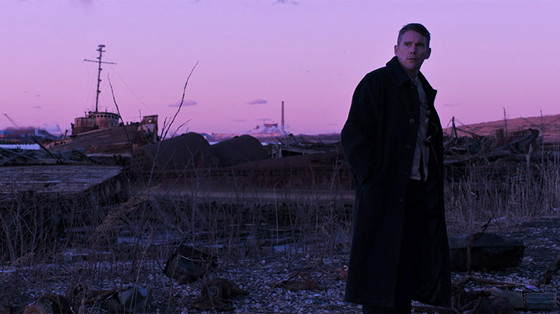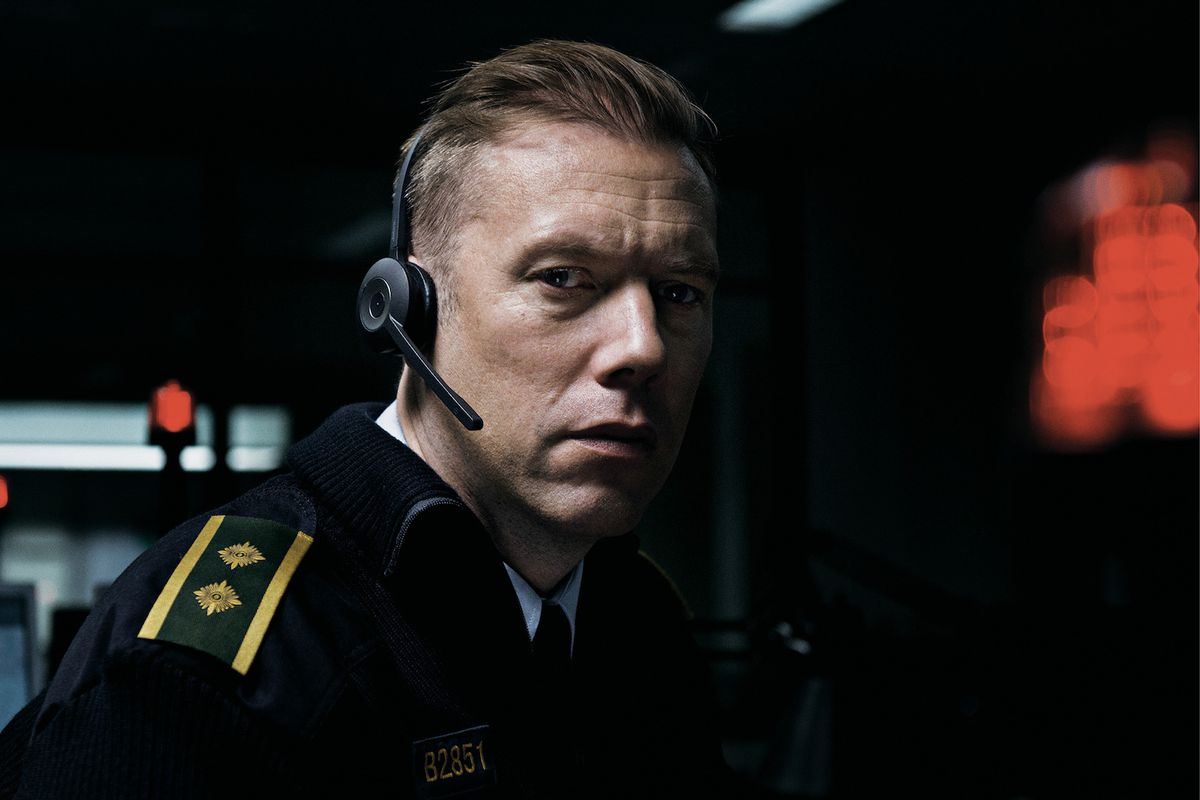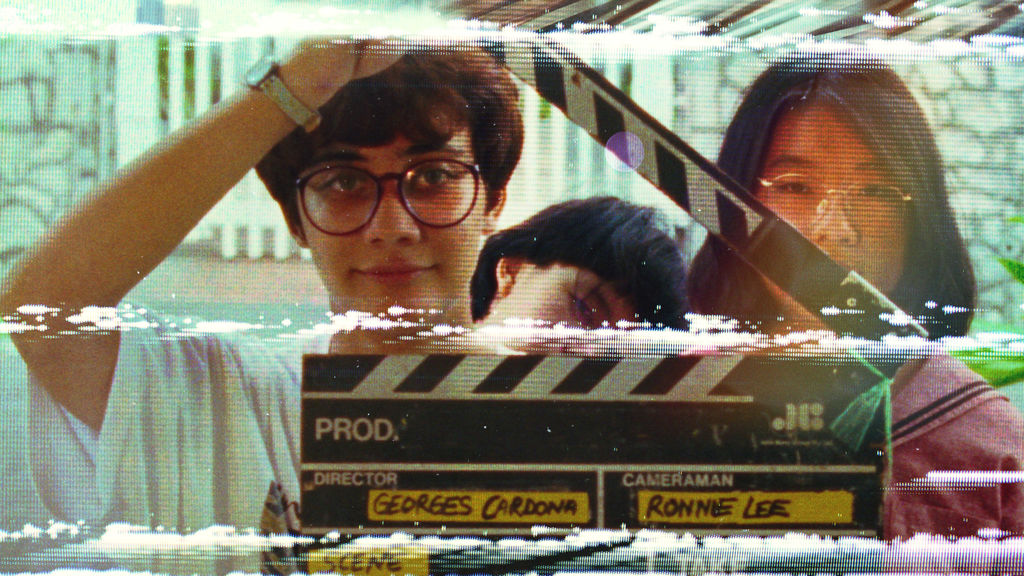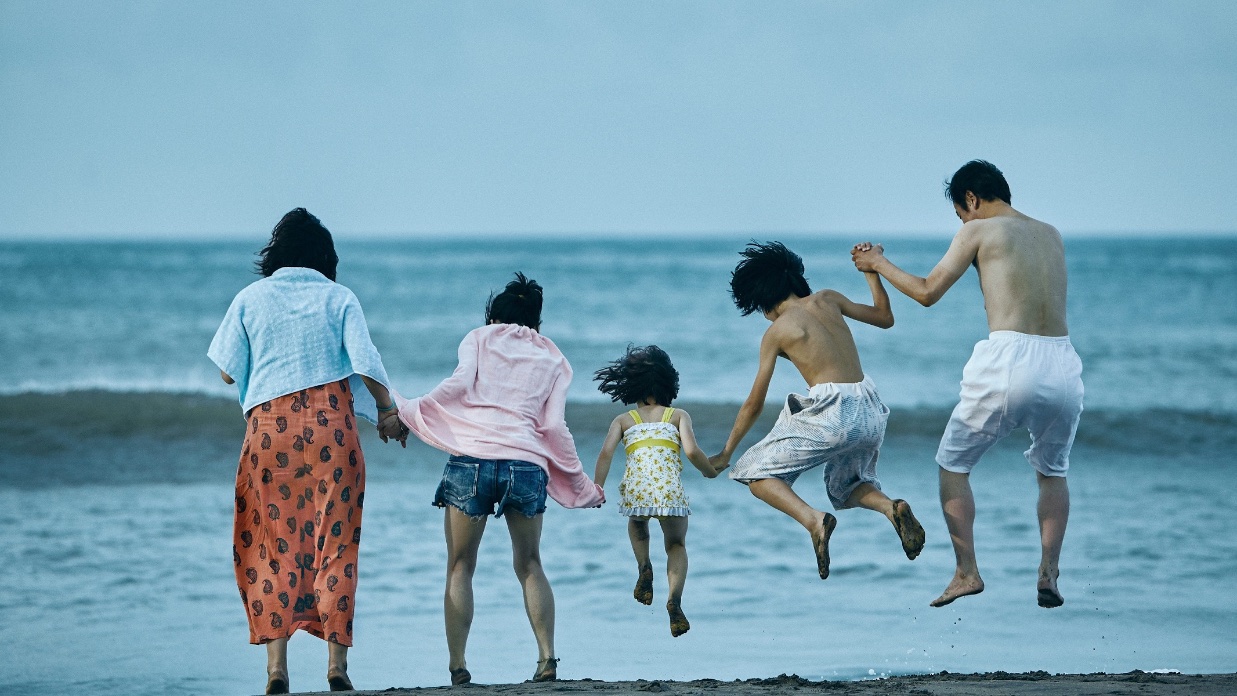6. First Reformed

Paul Schrader has been one of America’s greatest screenwriter’s in the last 50 years, most notably with his collaborations with Martin Scorsese. The ingenuity of Schrader is an underlying meaning of Catholicism he implements into his works, think back to the religious text burrowed into the sins of characters like Travis Bickle in “Taxi Driver” or the religious imagery associated with Jake La Motta and his wife Vickie in “Raging Bull”.
His newest film “First Reformed” feels like the culmination of his entire career. With this he creates a spiritually and psychologically challenging film that reflects the very questions and crisis a middle aged alcoholic priest named Father Toller (Ethan Hawke) is going through in the wake of a man’s suicide. This man was Michael and was an environmental activist who leaves behind a pregnant wife named Mary (Amanda Seyfried).
In a brilliant conversation early in the film in which he discusses his feelings with Toller he reveals he doesn’t want to bring a child into a world that’s poisoned and slowly being killed by the human race. As much as Toller tries to convince him of hope that’s left it seems as though Michael has had more of an influence on Toller.
What’s presented is like that of a biblical epic, the concepts of impending disasters and unstoppable forces are presented in the greatest sins of our modern world. Pollution, war, slavery, materialism, and corporate endorsed manipulation are brilliantly interwoven into its narrative.
And much like Schrader Ethan Hawke gives a performance that feels like the culmination of his career, Hawke is an actor that started in humble beginnings but has grown in experience. With this he gives a stunningly mature performance that ropes us into a state of crisis in which our preconceived beliefs are challenged with unquestionable truths and doubts.
The film is a patient one that takes its time and lets itself play out with restraint in its composition and haunts with its reveals. The imagery in the film is like that of a nightmare coming into our conscientiousness, nightmares built off of a world of experience that only a grand master like Schrader would understand.
7. The Guilty

If books tell stories through words, and music tells stories through sounds, then naturally films tell stories through images. This is where the term ‘cinematic’ comes from. “The Guilty” isn’t cinematic in the traditional sense but what it does do is present storytelling in its purest form, following a police officer Asger (Jakob Cedergren) as he works a late shift at an emergency call center. From early interactions we can sense that Asger is a brash, no nonsense type who criticizes and condemns.
The first couple of calls do a lot to reveal his character as he scolds one caller for taking drugs and then chastises another caller who’s been robbed by pointed out their bad decision making before he sends help for either of them. Reasons for he’s this way are hinted at in brief conversations, we know he’s separated from his significant other but as to why we’re still left in the dark.
The real plot gets going once he receives a call from a woman who’s seemingly tied up and being held hostage in the back of a van, from there Asger starts to become a better man as he needs to make calls to other officers, this woman’s kidnapper, and her children left helpless at home in a race against time before the worst happens.
The films limitations are its greatest strength. Being set inside the closed, dark confines of this call center we feel as secluded and helpless as Asger does. The film takes place entirely in this one location and even though there is never a literal thrill in the film this still emerges as one of the finest thrillers in recent years. But more so is what it says about the human condition and the way in which we perceive one another with what little information we know.
If you look up the term ‘confirmation bias’ it will explain, and I quote, “the tendency to search for, interpret, favor, and recall information in a way that confirms one’s preexisting beliefs or hypothesis.” In some way or another all of us do this every day of our lives either in small ways with no consequences or large ways with dire consequences.
This confirmation bias is what proves to be Asger’s greatest flaw, think of the way in which he condemns those first callers in the beginning. It also proves to be his greatest flaw in this case, what little information he does have he runs with it which ultimately costs a crucial price.
What Asger learns is what we learn which is nothing is certain and we don’t understand anyone or anything until we know all the information we need to know and we must not pass judgment until this is done. Just like Asger we go through a long journey in the dark and we become better as a result of it.
8. Leave No Trace

The mark of excellence in “Leave No Trace” is the perspectives in which it’s told from. This is framed from an outlier’s point of view in which we examine ‘the other’ rather than the norm. The way in which it does this is by focusing on the relationship between a father and daughter in these set of circumstances that frame a distinct relationship in a world that’s our own but yet miraculously unknown from us. Will, the father (Ben Foster), we learn is a former Iraq war veteran. He takes his daughter Tom (Thomasin McKenzie) with him and they live in the forest, the only times they go into civilization is for needed food and supplies.
Despite the circumstances Will has raised her incredibly well all things considering, after they’re caught by officials Tom is tested academically and she’s above the knowledge of her age range. They’re still together but are put under guidelines to live with a farmer, through this Tom is getting her first experience at the outside world and is quietly becoming attached to it. But Will is incapable of living under these circumstances and forces Tom to run away with him into the wilderness.
The connection between Foster and McKenzie is a relationship that’s felt instantly, without a single word you get the sense of a loving relationship between the two. McKenzie especially is a stand out here, this is only her third role and she certainly shows the makings of a bright star in the future. Director Debra Granik films in a docudrama way in which the natural world takes center stage.
Poverty, homelessness, PTSD, and single parentage are brilliantly interwoven into a tale that in other hands could’ve been preachy soap box material but instead is crafted with a firm hand and a coordinated eye that pulls everything together in a loving heartache of a film.
9. Shirkers

The category doesn’t say “Best Fictional Picture” it says “Best Picture”. Documentaries are pictures and by all indication are eligible, but are never nominated. The “Best Documentary” category doesn’t do films any service, more especially since “Shirkers” wasn’t even nominated, the documentary branch has proven to be one of the historically biased and unreliable branches in the academy.
This calls to mind the 1995 awards in which the 1994 documentary “Hoop Dreams” was shockingly snubbed, as a result of the outcry the academy promised to investigate the situation after light had been shed on the voting committee intentionally voting their lowest grade in fear that “Hoop Dreams” would win if it was nominated. Sadly there hasn’t been much reform in the last 24 years. If anyone wants a better idea of this you can watch Siskel and Ebert’s February 18, 1995 episode, “Snubbed”, in which they discuss this very topic.
The 20th century is a fascinating one because this is the first century, leading into this one, where history could be recorded on film for generations to see as time goes on. The very invention of this art form has given us the ability to capture lightning in a bottle, we have the ability to record history as its happening and document our lives for us to look back upon. Director Sandi Tan knows this all too well in this saddening story of her love for the cinematic art form.
Growing up in Singapore, Tan and her friends were captured by the possibilities of what movies could bring. They devoted their lives to it and as teenagers came together to make a feature film, “Shirkers”. It was far more than just a movie for them, it was an essential chapter of their lives. It was their upbringing, their friendships, their tribulations, their dissention, and the culmination of everything they had dreamed recorded on film for them to see.
Sadly it was all taken away by a man who never returned the footage they had completed, just like that a part of their history was taken away. 20 years later, and 10 years after the death of this man, Tan is contacted and told of the found reels of her film she made so long ago. With it she discovers a time of her life that’s long gone, a chapter that was never told and could’ve changed everything for her and her friends for the rest of their lives. Tan decided to digitalize this footage and turn it into a documentary, the documentary we have the privilege of watching now, and this time there’s no erasing it from history.
10. Shoplifters

At the very least I suppose we can all take solace in the fact that this won a ‘Best Picture’ prize in its own right, and arguably a far more prestigious one, with the Palm d’Or at Cannes last summer. Director Hirokazu Koreeda does nothing less than what he’s a master of and that’s telling deeply personal tales of family, siblings, and children.
When you take a look at his filmography there’s no doubting his ability with telling life’s most challenging stories, look at the child abandonment in “Nobody Knows” or the parental relationship to their children in “Like Father, Like Son” and you’ll know what I’m talking about.
Based on the title “Shoplifters” you can probably get a good idea of what to expect this time around. We follow a poor, desperate family who shoplift out of necessity for food and supplies. On the way back from one of their ventures they come across a little girl all alone on a bench who follows them home after she’s offered a croquette.
Even in their need they still have good enough hearts to care for one another and others. When they attempt to take this girl home they find parents shouting and fighting loudly, in this moment they know she’s not going back there.
What Koreeda does is what he’s been doing his entire career and that is finding life among the low life. It’s easy to take the unfortunate ones for granted as we drive past them under the highway or see them wandering around an abandoned area. But they’re people too and they have emotions and struggles just the same, probably even more so than any of us.
“Shoplifters” is a little piece of this life and this world that many try to look past. Koreeda tells sadly beautiful stories of family and ingenuity and this is no different, in many ways this is the most human story of the year and shouldn’t be overlooked.